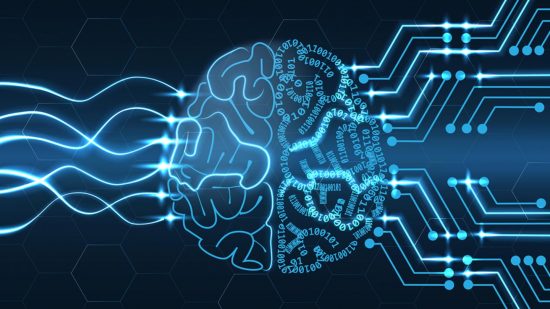 When Dan Brown wrote Origin, he wasn’t so much predicting at the future as documenting the present. Google, Alexa, and Siri are today a part of our lives and we all use them without batting an eyelid. Two decades ago, suggesting that something like would be an essential part of our lives may have seemed ludicrous, but we all know that the day is not far when machines will rule our world. From medical science to the military and from offices to elderly care, we are already beginning to depend heavily on AI. That as a tech geek you should want to be a part of this revolution sweeping the globe is not surprising. Indeed several universities and colleges have revamped their CS departments to include courses in AI.
When Dan Brown wrote Origin, he wasn’t so much predicting at the future as documenting the present. Google, Alexa, and Siri are today a part of our lives and we all use them without batting an eyelid. Two decades ago, suggesting that something like would be an essential part of our lives may have seemed ludicrous, but we all know that the day is not far when machines will rule our world. From medical science to the military and from offices to elderly care, we are already beginning to depend heavily on AI. That as a tech geek you should want to be a part of this revolution sweeping the globe is not surprising. Indeed several universities and colleges have revamped their CS departments to include courses in AI.
If you aspire to make a future in this ‘futuristic’ arena, you are sure to have several pressing questions you would like answered:
- Where can I study AI?
- What courses should I be taking?
- What are my options after graduating from college? Where will I find a lucrative job?
In this article, we will try to answer these questions for you.
Which colleges can I apply to?
The short answer is: many! From Carnegie Mellon, which was among the first to start a course in AI to MIT, you are spoiled for choice. Carnegie Mellon tops the list of colleges with its groundbreaking and interdisciplinary course, followed closely by Stanford where this area has been studied and researched since 1962! MIT gives a lot of money and attention to its AI division and their Computer Science and AI Lab is among the best labs in the college. University of California, Berkeley has a robust AI department as does Harvard that also boasts an AI research center. Yale, Cornell, University of Maryland, Columbia, University of California LA, and Georgia Tech are some other incredible options. With significant research opportunities, large and accomplished faculty and increasing student strength, these are among your go-to options.
Which courses can I take?
While there is no dearth of options – from short-term certificate courses available of Coursera and similar platforms to degree programs, we would recommend aiming for the top guns. While it is impossible to list all the courses and programs available, we would like to draw your attention to a few that are top of the list. Carnegie Mellon’s BS in AI is among the Big Boss of majors you can apply for. Cornell’s Computer Science department offers numerous courses that can be of interest to you: Data Science for All, Autonomous Mobile Robots, Foundations of AI, Practicum in AI, Social and Ethical issues in AI (which we believe is a very relevant and essential component of this field), and Machine Learning for Data Science. USC Vertibi provides excellent undergrad research opportunities in Robotics and Autonomous Systems and among several other things they focus on niche areas such as healthcare, environmental monitoring, and machine learning and algorithms for control of humanoids. We recommend deep and thorough research before you take your pick.
Where can I work? And as what?
While the simple response to this is: the tech sector, obviously, there is actually an increasing demand for people who know their bots from their apps. According to job hunt sites such as Indeed, the positions open to you include machine learning engineers, data scientists, algorithm developers, deep learning engineers, and computer vision engineers among others. Job opportunities lie in companies as varied as Facebook and OCBC legal and compliance, according to another job hunt site Glassdoor. As always, the Bay Area remains among the top destination for job seekers with not only big established names but also a host of start-ups on the lookout for young engineers well versed in AI and machine learning. Among the highest-paid of these jobs are those of big data engineers, data scientists, data architects, information systems security managers, and data security analysts.